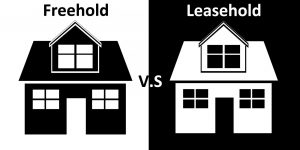First Time Buyers now pay less or no tax if all purchasers are First Time Buyers and the purchase price of the property is £500,000 or less.
Since 1st July 2021, the current Stamp Duty Land Tax (SDLT) threshold has gone down to £250,000. Although the bigger savings before this date have now been reduced, there is still an opportunity to save up to £2,500 on SDLT before it returns to its regular threshold rate of £125,000 from 1st October 2021.
What has gone unnoticed by most commentators is the change that affects First Time Buyers, which also came into effect from 1st July. Since that date, First Time Buyers now pay less or no tax if all purchasers are First Time Buyers and the purchase price of the property is £500,000 or less.
First Time Buyers are exempt from SDLT for the first £300,000, but since 1st July, they now pay a reduced rate of 5% on purchase prices above £300,000 and up to, and including, £500,000. So, if you’re a First Time Buyer, but were unfortunate to miss out on the 30th June deadline, there are still longer-term savings to be made, as these will continue for First Time Buyers after the SDLT returns to its £125,000 threshold from 1st October 2021 for all other buyers.
 Worrying news for the rental sector!
Worrying news for the rental sector!

 According to a recent report, the UK has seen growth in the number of mortgages for non-standard borrowers, such as for buy-to-let landlords and lifetime mortgages. Since 2009, there has been a 19% increase each year to the value of the mortgage lending companies annual lending. These companies have seen their lending amounts increase to £17 billion per year in 2016, a significant increase on the £5 billion that was recorded in 2009.
According to a recent report, the UK has seen growth in the number of mortgages for non-standard borrowers, such as for buy-to-let landlords and lifetime mortgages. Since 2009, there has been a 19% increase each year to the value of the mortgage lending companies annual lending. These companies have seen their lending amounts increase to £17 billion per year in 2016, a significant increase on the £5 billion that was recorded in 2009.
 If you’re one of those shopping for a house soon and you are considering a mortgage, you should carefully analyse a couple of factors before making a decision. The location, the time you are going to spend in your new home (if it is temporary or, hopefully, for the rest of your life), the purpose of the investment (for your own living or if it is a buy to let), and other life circumstances should be considered when choosing a type of mortgage.
If you’re one of those shopping for a house soon and you are considering a mortgage, you should carefully analyse a couple of factors before making a decision. The location, the time you are going to spend in your new home (if it is temporary or, hopefully, for the rest of your life), the purpose of the investment (for your own living or if it is a buy to let), and other life circumstances should be considered when choosing a type of mortgage.


